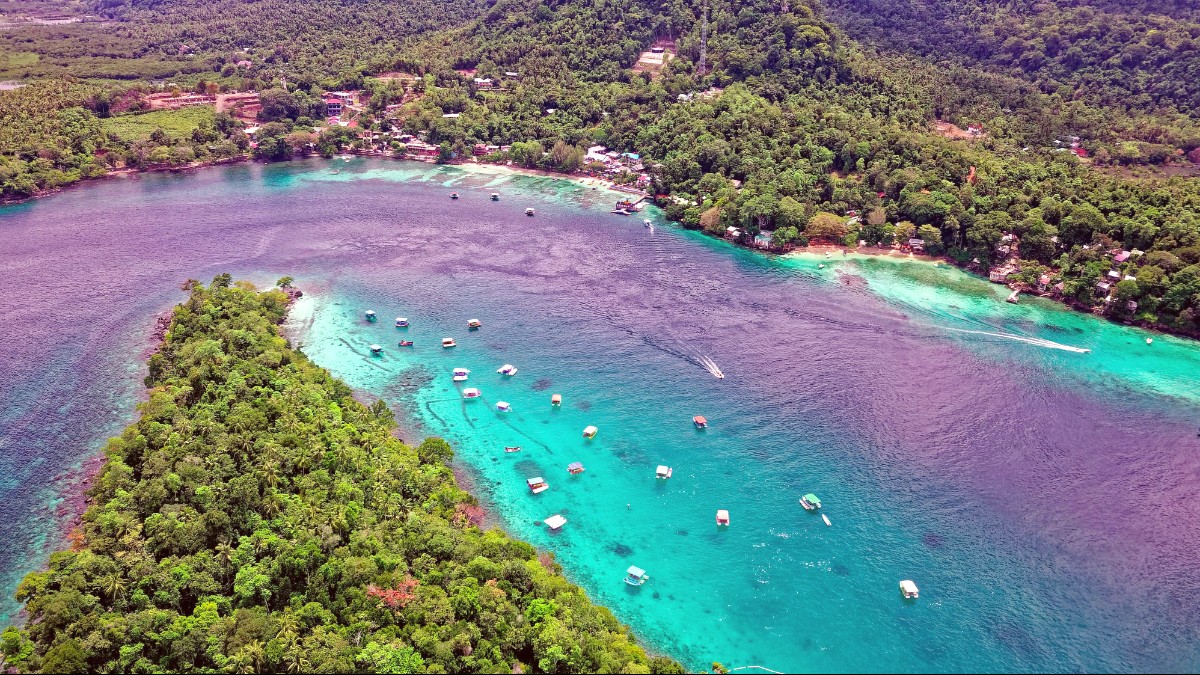
Indonesia
Sultan Iskandar Muda International Airport (BTJ) in Banda Aceh serves as the main gateway. Maimun Saleh Airport (SBG) on Pulau Weh handles smaller domestic flights to/from Banda Aceh. Domestic airlines like Garuda Indonesia, Lion Air, Batik Air, Citilink, and Wings Air connect BTJ to other major Indonesian cities. Direct international flights to BTJ are limited, often connecting through Kuala Lumpur (Dollar Flight Club for deals).
No direct flights connect Aceh to major global hubs outside Southeast Asia or the Middle East. Most international travelers connect via regional airports like Jakarta, Kuala Lumpur, or Medan. Plan your connections with sufficient layover time. Flight prices vary seasonally; booking well in advance for peak times (June-August, holidays) is wise. Airport facilities at BTJ are basic, with ATMs and a few eateries. SBG on Pulau Weh has minimal facilities.
No international land borders for tourist entry. Buses connect Banda Aceh with other major North Sumatra cities like Medan. Long travel times (10-12 hours to Medan). Train services are not present in Aceh.
An International Driving Permit (IDP) is legally needed with your national license. Driving is on the left. Road conditions vary; urban traffic can be chaotic. Self-drive car rental is less common due to local driving habits. Consider DiscoverCars.com for rental options.
Sea travel serves connections to Pulau Weh from Ulee Lheue port in Banda Aceh. Options include a 2-hour slow ferry (allows vehicles) or a 1-hour faster express ferry. Check schedules as they can change. No international immigration procedures at Aceh's seaports for general tourism.
Taxis, Gojek, Grab, or public minibuses (Labi-labi) available to Banda Aceh city center.
Shared vans, taxis, or scooter rentals are at the port for Iboih, Gapang, or Sabang city.
Long-distance buses connect Banda Aceh with Medan and other cities in North Sumatra.
Main roads between cities are generally paved. They can be narrow and may carry heavy truck traffic. Rural roads might be unpaved or poorly maintained, especially during the wet season. Be prepared for variations in surface quality.
Traffic can be chaotic in urban areas. Motorbikes frequently weave through lanes, often without clear signals. Road accidents are common. Defensive driving and careful pedestrian awareness are important.
While self-driving offers independence, consider hiring a driver for longer trips, especially if you are not accustomed to Asian traffic conditions.
Pedestrian infrastructure is not extensive outside main tourist areas. Cycling on main roads can be challenging and less safe.
Banda Aceh offers TransKoetaradja buses (modern, AC, structured routes) and Labi-labi (small, privately operated vans on fixed but flexible routes, often crowded). Both are budget-friendly. TransKoetaradja has designated stops and fixed fares (cash on board). Labi-labi are flagged down anywhere, with low fixed fares. Hours typically run from early morning to late evening, varying by service.
Traditional taxis operate in Banda Aceh; use metered ones or negotiate fares. Gojek and Grab are widely used in Banda Aceh and Sabang (Pulau Weh), offering fixed, transparent fares for motorbikes (Ojek/GrabBike) and cars (GoCar/GrabCar). Payment is cash or linked e-wallet. Ride-hailing apps offer safety features like driver tracking.
Very popular on Pulau Weh and for exploring outside Banda Aceh. Rental costs typically range from IDR 70,000 - 150,000 per day. A valid motorcycle license and IDP are technically needed, but local rental places often do not check. Always wear a helmet, which the rental provider should supply.
No formal bicycle sharing programs. Bicycle rentals might be available at some guesthouses on Pulau Weh. Becak (pedicabs or motor-becaks) are common for short distances in urban areas; negotiate fares as they are not metered. Car rental is available in Banda Aceh, often with a driver.
Banda Aceh city center has some sidewalks, but pedestrian infrastructure is not extensive. Walking is feasible for short distances around the Grand Mosque or Tsunami Museum. Pulau Weh offers more pleasant walking opportunities in smaller villages. Major highways are not safe for pedestrians or cyclists.
No formal hop-on-hop-off services. Tour buses are typically for specific group tours or private charters. Boat taxis are available on Pulau Weh for short trips between beaches (e.g., Iboih to Rubiah Island) or for diving/snorkeling tours. River transportation is limited for tourists, mainly for local transport or exploring mangroves.
Accessibility infrastructure in Aceh is generally poor. Sidewalks are uneven or non-existent, and ramps are rare. Public transportation systems are not designed for wheelchair access. Travelers with mobility needs may encounter significant challenges and will likely require pre-arranged private assistance.
Drive on the left side of the road, similar to the UK and Australia.
Helmets are mandatory for motorbikes. Traffic laws exist but are often loosely interpreted by locals.
Generally informal. Park on the side of the road or in designated spots outside businesses. Observe local instructions.